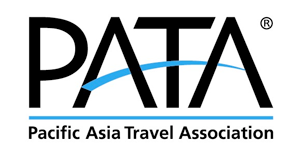The travel and tourism industry was among the hardest hit by the Covid-19 pandemic. Border closures, coupled with international travel restrictions and social-distancing measures, were devastating for the industry, particularly so in Southeast Asia.
Prior to the pandemic, the tourism sector contributed about 12 per cent of Asean's gross domestic product (GDP). It is also a source of income for millions of people, both directly and indirectly.
Now that more Southeast Asian countries are opening their borders to vaccinated tourists, the recovery of the tourism sector is expected to gather momentum.
From Apr 1, Singapore allowed fully vaccinated travellers from all countries to enter the country without the need to quarantine.
The move followed those of Thailand and the Philippines, which opened their borders for fully vaccinated visitors months earlier. Malaysia and Indonesia, too, have removed entry restrictions and done away with quarantine requirements.
Even as there is acknowledgement that Covid-19 is now more endemic (it will have to be lived with), there are certain travel trends caused by the pandemic that will likely stick.
Research conducted by Visa reveals that leisure travellers are now more inclined towards travelling to safer and sanitised facilities and destinations.
The study also found that travellers have become more opportunistic, and are choosing to make bookings much closer to travel dates than was observed prior to the pandemic.
Additionally, more travellers are choosing domestic travel. Insights from Google show that Indonesia saw a 40 per cent spike in domestic tourism between August and September 2021 when compared with the same period in 2020.
A recent survey by Airbnb reveals that more than half (57.6 per cent) of travellers across Asia-Pacific plan to spend more on domestic tourism. This sentiment was echoed by 66.7 per cent of Malaysians, and 65.3 per cent of Thai nationals.
Travellers are also seeking to travel to rural locations while avoiding the more popular locales that typically draw people in large numbers. Nearly 3 in 5 (59.2 per cent) of Thai travellers plan to visit rural locations that are not very popular among most tourists.
Hotels are becoming more sustainable and environmentally friendly. The move to remote work has also supported the growing "workation" trend in the region.
Meanwhile, other research points to a mounting desire to splurge on a "trip-of-a-lifetime" among travellers in 2022.
There is more inclination towards connecting and making memories with friends and loved ones, as the pandemic forced many to take stock of what was important to them. There are defining changes in demands among the region's travellers.
- TAGS / KEYWORDS:





.png)


















.jpg)




.png)










